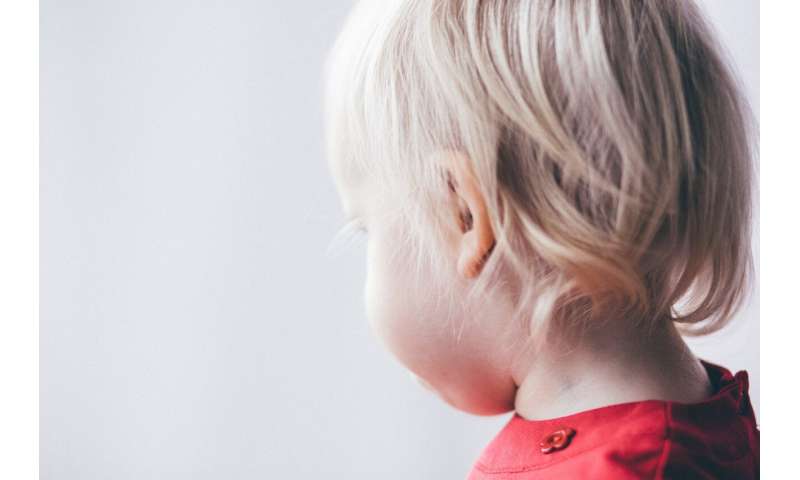Audiogene: The first clinical trial in France for a gene therapy to treat hearing loss in children

The aim of this clinical trial, which has just received approval in France, is to assess the safety and efficacy of a new gene therapy drug in children aged between six and 31 months with profound hearing loss.
Audiogene was developed by a French consortium composed of teams from the Hearing Institute, an Institut Pasteur research center; the ENT Department and Pediatric Audiology Research Center at Necker-Enfants Malades Hospital (AP-HP); Sensorion and Fondation Pour l'Audition. The trial has also been submitted to other European countries and is currently undergoing assessment.
Audiogene is the first clinical trial in France to test a gene therapy drug, SENS-501, developed by the biotech company Sensorion, to treat children with DFNB9, a form of hereditary deafness caused by mutations in the OTOF gene, which encodes a protein called otoferlin. The usual treatment for this form of hearing loss is a bilateral cochlear implant.
The aim of this treatment is to restore hearing. It works by injecting a copy of the normal otoferlin gene into the child's impaired inner ear. The SENS-501 drug is designed to correct the genetic abnormality in the inner ear cells of children with hearing loss and restore inner ear cell function and hearing in these children.
The first step in the clinical trial will be to test two doses of SENS-501 so that the optimal dose can be selected for the rest of the trial.
In practice, the SENS-501 gene therapy drug will be directly injected into the inner ear of the child with DFNB9 deafness. The drug is injected into the round window in the inner ear, in a similar way to cochlear implantation surgery.
The procedure will be performed under general anesthetic by a lead ENT surgeon. The drug will be administered using an injection system developed in partnership with the company EVEON, so that the injected dose can be measured precisely and the inner ear structures can be preserved.
This gene therapy for hearing loss patients with an otoferlin deficiency was developed as part of the RHU AUDINNOVE project, involving a consortium composed of scientists from the Hearing Institute, an Institut Pasteur research center; physicians from the ENT Department and Pediatric Audiology Research Center at Necker-Enfants Malades Hospital (AP-HP); and teams from Sensorion and Fondation Pour l'Audition.
Nawal Ouzren, Chief Executive Officer of Sensorion, said, "The launch of the Audiogene clinical trial is a significant milestone in the development program of SENS-501, a pioneering drug candidate in the field of gene therapies for genetic hearing loss. We are delighted to be continuing our collaboration with the team at the Fondation Pour l'Audition, the research teams at the Hearing Institute and the clinical team at the Pediatric Audiology Research Center at Necker-Enfants Malades Hospital (AP-HP), as part of the AUDINNOVE consortium."
"This consortium, composed of leading stakeholders, is currently one of the few players worldwide capable of bringing about a technological and medical revolution that offers real hope for all children with congenital hearing loss."
Natalie Loundon, Director of the Pediatric Audiology Research Center and a Pediatric Otolaryngologist and Head and Neck Surgeon at Necker-Enfants Malades Hospital (AP-HP), who is the Audiogene clinical trial coordinator investigator, adds, "This project is incredibly innovative and represents a first in the field, raising high hopes for patients with hearing loss. The project heralds the advent of a revolution in the future treatment of hearing loss patients."
"For this study, DFNB9 patients will be offered an alternative to cochlear implantation. We are already working on widening the indications to include other causes of hearing loss."
Multiple technological innovations
A gene can only enter inner ear cells if it is transported by a viral vector that is capable of crossing the cell membrane. In this case the adeno-associated virus (AAV) is used to deliver the gene. As the OTOF gene is so big, it is divided into two DNA fragments, each transported by an AAV, which are then assembled inside the inner ear cells. This is referred to as a dual AAV vector technology.
AAV vectors are harmless and non-pathogenic; they are reliable, well known and do not cause diseases. They are produced using the highest applicable industry standards and approved by health authorities for use in humans. Some are already in use and have been marketed as treatments.
Provided by Pasteur Institute